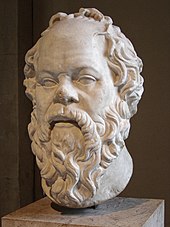Orality
Orality is thought and verbal expression in societies where the technologies of literacy (especially writing and print) are unfamiliar to most of the population.
[3] 'Primary orality' refers to thought and its verbal expression within cultures "totally untouched by any knowledge of writing or print.
"[4] Ong argues that the immediacy of sound, and the longevity of writing, correspond to the intrinsically different ways in which oral and literate societies and people function.
[5] In his studies of the Homeric Question, Milman Parry was able to show that the poetic metre found in the Iliad and the Odyssey had been 'packaged' by oral Greek society to meet its information management needs.
‘Residual orality’ refers to thought and its verbal expression in cultures that have been exposed to writing and print, but have not fully ‘interiorized’ (in McLuhan's term) the use of these technologies in their daily lives.

